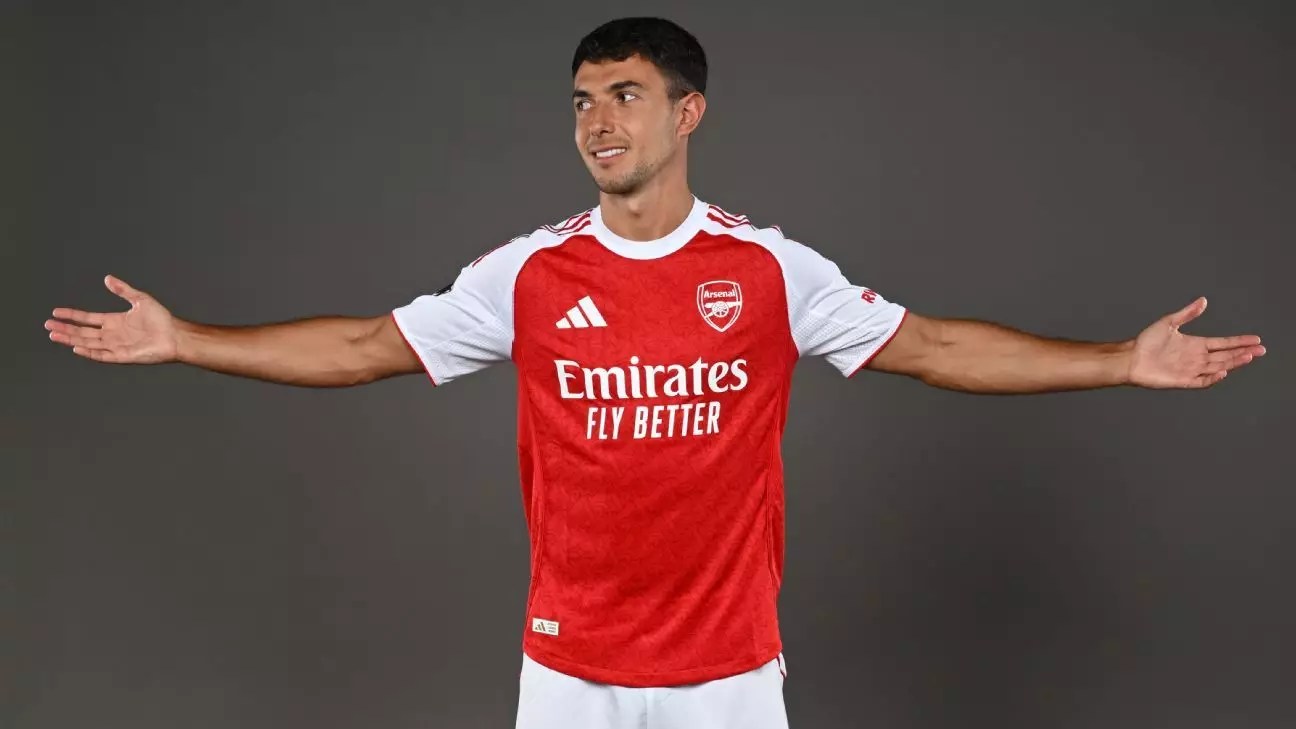In contemporary football, the archetype of the defensive midfielder has often been reduced to a mere shield for the backline, a role confined within traditional boundaries. Yet, emerging talents exemplify a paradigm shift — players like Martín Zubimendi showcase how a midfielder can blend relentless defensive discipline with creative orchestration. Such players not only fulfill tactical duties but also become pivotal in shaping the flow and rhythm of the game. This evolution demands a nuanced understanding of how modern midfielders operate, and Zubimendi’s career trajectory perfectly encapsulates the transformative potential of this role.
What distinguishes the modern deep-lying midfielder is their ability to anticipate plays, distribute effectively, and control the tempo. Zubimendi, with his remarkable composure and technical prowess, exemplifies this new breed. His passing accuracy, quick decision-making, and positional intelligence elevate him beyond traditional expectations. These qualities transform him from a purely defensive asset into an integral component of possession-based strategies, asserting that the role is no longer about mere protection but about proactive control.
The Significance of Proper Development and Mentorship
Zubimendi’s career underscores the importance of a dedicated developmental pathway, illustrating how stability and guided growth shape a player’s potential. Joining Real Sociedad’s academy at 12, his journey reflects patience and deliberate maturation — qualities often neglected in today’s hyper-scouted transfer market. Too frequently, young players are rushed into top-tier environments, risking burnout or underachievement. Zubimendi’s gradual ascent highlights that nurturing talent within a supportive framework yields more consistent and reliable performers.
His mentorship under Xabi Alonso and later Mikel Arteta has been crucial. Alonso’s influence, particularly in honing his understanding of the deep-lying playmaker’s responsibilities, helped craft a cerebral mind adept at balancing defensive duties with creative distribution. This mentorship underscores a broader lesson: strategic guidance and game intelligence are as vital as athletic talent. When players like Zubimendi are shaped by experienced tacticians over time, they develop a nuanced understanding of how to adapt dynamically to various tactical systems.
Beyond Defensive Solidity: The Expanding Arsenal of a Midfielder’s Skills
While Zubimendi may be characterized primarily as a “tactical player,” this descriptor underestimates his versatility. His technical attributes — a precise first touch, excellent body control, and the capacity to execute speedy, accurate passes under pressure — reveal a multifaceted skill set. Modern football demands this breadth; midfielders must function as playmakers, defenders, and transitional engines all in one. Zubimendi’s game demonstrates that mastery involves weaving these roles seamlessly.
Particularly noteworthy is his ability to initiate play and maintain possession in congested areas. His propensity for rapid, incisive passing helps unravel defensive lines and sustain attacking momentum. Although his assist tally might not rival that of flamboyant creators, his ability to recycle possession effectively is instrumental for possession-heavy teams. As he matures, expanding his range of progressive and line-breaking passes could elevate his influence further, transforming him into a true architect from deep positions.
The Tactical Intelligence That Sets the Elite Apart
Zubimendi’s defensive acumen – his anticipation, positional discipline, and quick decision-making – demonstrates a high football IQ rarely seen at his age. His methodical approach reduces unnecessary fouls and minimizes risks, exemplifying a player who values smart play over aggressive gestures. His disciplinary record, marked by a clean sheet, indicates maturity and self-control, traits essential for commanding the midfield against the tactical and physical challenges of top-tier leagues like the Premier League.
Furthermore, his capacity to adapt tactically across systems — from a lone pivot in a 4-1-4-1 to a dual midfielder setup — emphasizes his tactical flexibility. Such adaptability is crucial in today’s fluid tactical landscape. As he joins Arsenal, with its possession-centric ideology under Mikel Arteta, the question isn’t whether Zubimendi can adjust, but how quickly he can become an integral part of a nuanced, multifaceted system.
From La Liga to the Premier League: The Challenge of Transition
Moving from La Liga to the Premier League entails more than just changing leagues; it shifts the physical, transitional, and mental demands placed on a player. English football’s relentless tempo, muscular battles, and quick transitions require a midfielder to be not only tactically astute but also physically robust. Zubimendi’s résumé, replete with international honors and consistent performances, suggests he possesses the foundational qualities to succeed. Still, the adaptation phase will test his resilience.
Historically, successful integration hinges on more than individual skill; it rests on understanding the cultural and tactical nuances unique to the Premier League. His prior interest from clubs like Liverpool, Manchester City, and Bayern Munich signals widespread recognition of his potential. Yet, Arsenal’s style — emphasizing possession, quick switches, and positional discipline — aligns well with Zubimendi’s strengths. His familiarity with similar tactical concepts, coupled with his mature approach, increases the likelihood of a smooth transition and meaningful impact.
Strategic Fit and Future Horizons at Arsenal
Zubimendi’s arrival at Arsenal is a calculated step toward reinforcing the club’s strategic midfield blueprint. His role as a stabilizing presence allows others like Declan Rice and Martin Ødegaard more freedom to roam and create. More importantly, his experience on the international stage, notably with Spain’s Euro 2024 triumph, offers a calm, seasoned leadership presence that can resonate within the dressing room.
This strategic fit extends beyond tactical alignments; it embodies a cultural synergy. Sharing a Basque heritage and a common linguistic background with Arteta certainly facilitates communication and tactical understanding. Such cultural cohesion can often be overlooked but is increasingly recognized as pivotal in integrating new players into established systems. In essence, Zubimendi’s nuanced profile makes him not just a transfer target but a transformative element capable of elevating Arsenal’s midfield complexity and resilience.


Leave a Reply